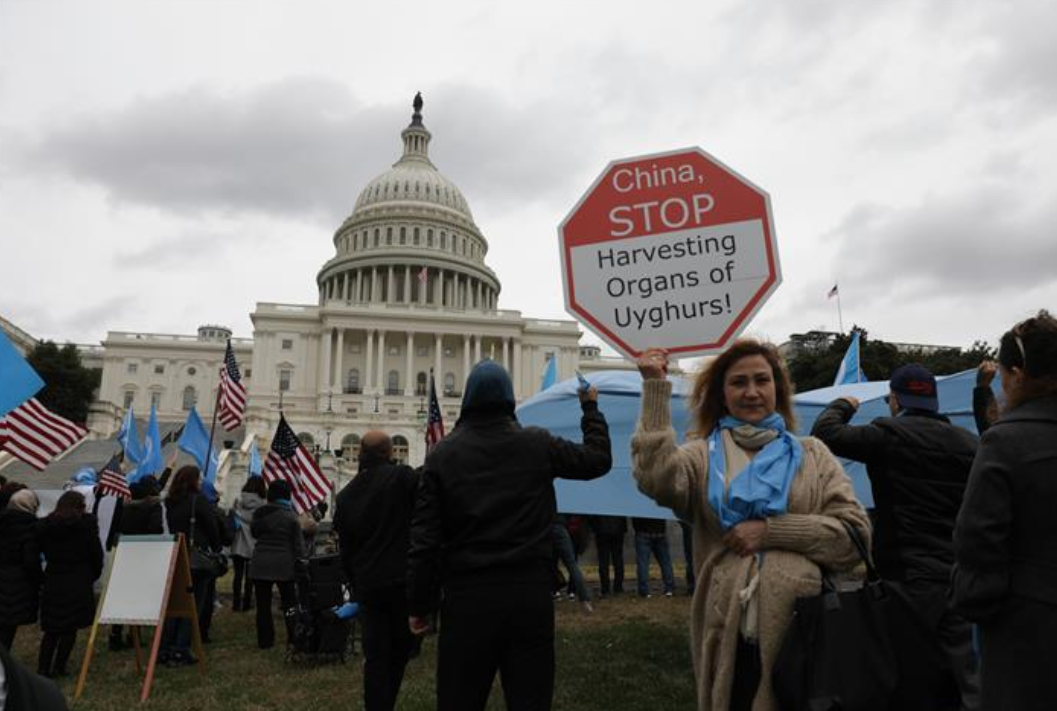Fri Dec 17, 2021
Friday / December 17
Uyghur law
The US Senate unanimously passed a bill on Thursday stopping all imports not proven to be the product of the Chinese government's forced labor of Uighurs and other ethnic minorities.
The Uyghur Forced Labor Prevention Act, which was previously passed by the House of Representatives on Tuesday, will ban all imports from China's Xinjiang region unless the US government determines with "clear and convincing evidence" that a certain good was not product of forced labor.
The White House confirmed that President Biden will sign the bill.
The bill could impose the first financial costs the Chinese government has ever faced in dealing with gross human rights violations against Muslim-majority Uighurs and other ethnic groups in Xinjiang, and could set a precedent for other countries to do the same.
Big companies like Nike and Coca-Cola lobbied against the bill, arguing far-reaching consequences for US supply chains that are deeply integrated into Chinese industry.
New sanctions on China
The Biden administration said on Thursday it has imposed trade restrictions on more than 30 Chinese research institutes and organizations for human rights abuses and developing technology such as brain-control weapons that undermine US national security.
The US Department of Commerce accused the Chinese Academy of Military Medical Sciences and 11 research institutes of developing biotechnology “to support Chinese military end uses and end users, to include purported brain-control weaponry.”
The announcement did not provide further details about the alleged brain-control weapons.
“The scientific pursuit of biotechnology and medical innovation can save lives. Unfortunately, the PRC is choosing to use these technologies to pursue control over its people and its repression of members of ethnic and religious minority groups,” U.S. Secretary of Commerce Gina Raimondo wrote in a statement referring to the People’s Republic of China and human rights abuses in China’s far-west region of Xinjiang.
Meanwhile, the US Senate, by a vote of 75 to 18, approved Biden nominee Nicholas Burns as the US ambassador to China.
US stocks
U.S. stocks slumped on Thursday with weakness in major tech stocks.
The tech-heavy Nasdaq Composite Index fell 2.47% to close at 15,180.43 points on its worst day since September. The S&P500 fell 0.87% to 4,668.67. Dow Jones Industrial closed at 35,897.64 with a modest loss of 29.79 points, or 0.08%, after gaining more than 200 points at the start of the session.
Adobe fell more than 10%, Apple fell 3.9%. Major semiconductor stocks like AMD and Nvidia saw losses of around 5.4% and 6.8%, respectively.
The U.S. Department of Labor reported that unemployment claims rose 18,000 to 206,000 in the week ended December 11.
Brussels warns EU
European Union leaders announced on Thursday that they agreed to impose unprecedented economic sanctions on Russia — together with the United States and the United Kingdom — if the Russian military invades Ukraine.
BoE decision
The Bank of England increased interest rates from 0.1% to 0.25% in response to calls to combat rising price increases.
Bank manager Andrew Bailey said strong inflationary pressures in the economy must be tackled.
The Central Bank of Mexico also increased the benchmark interest rate by 50 basis points to 5.50% in order to keep price pressures under control due to the rise in inflation. The increase was above expectations for a 25-basis point increase.
